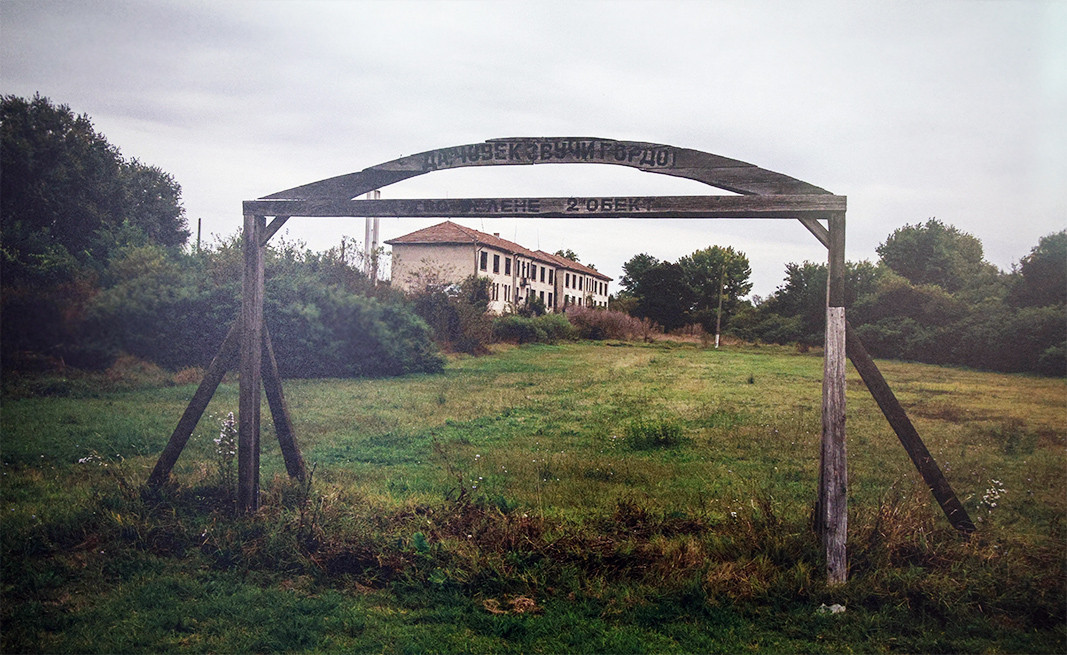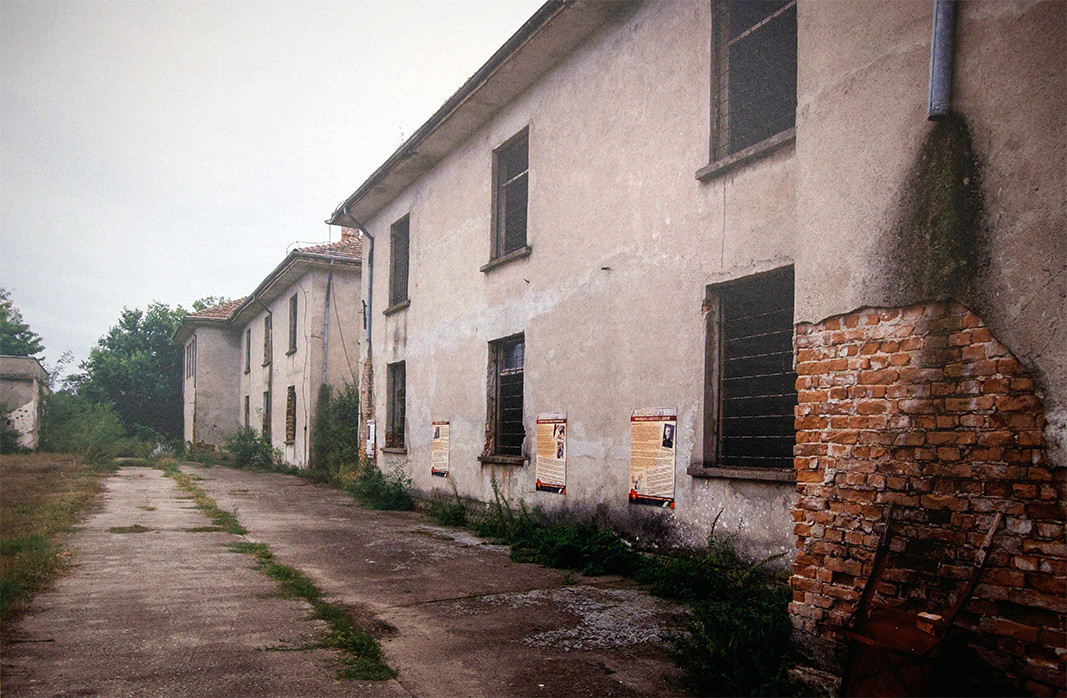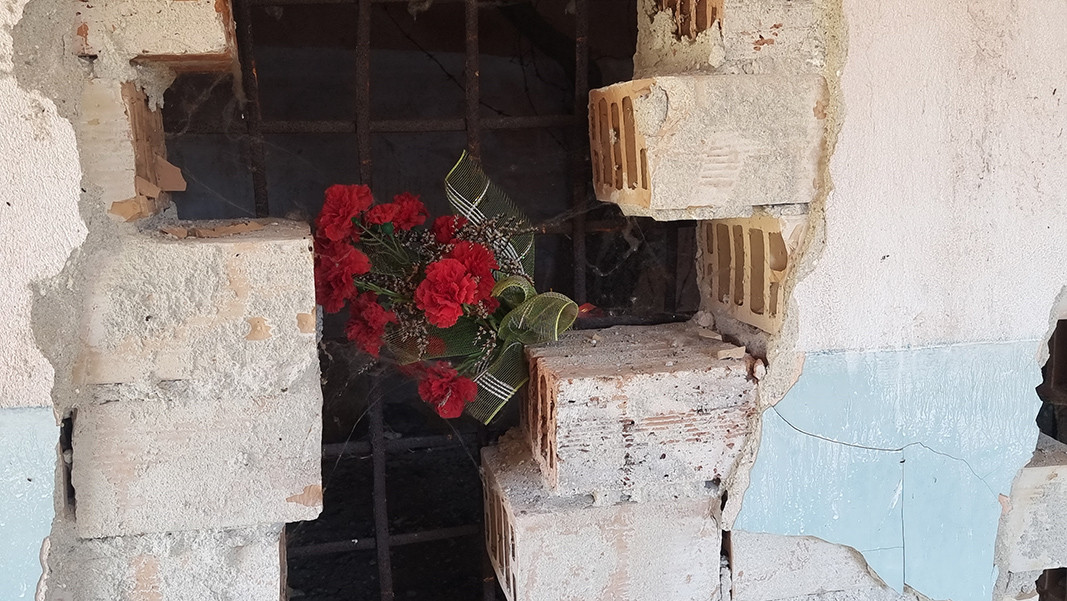Bulgaria is still the only European country without a memorial to the victims of totalitarian regimes. Attention was once again called to this shameful fact, like a long untreated ulcer on the body of our society, on 1 June, when hundreds of people flocked to Persin island to honour the victims from the communist concentration camp Belene, people who refused to erase their own selves as humans for the sake of their survival.
On the day for honouring the victims of totalitarian regimes, writer Theodora Dimova, whose novels The defeated and I don’t know you delve into the recent past of the country and the wounds it has inflicted, wounds that have remained open because no one has been convicted and the truth remains distorted, urged that we read this page so we can address the explosion of hatred, aggression, greed, cynicism, indifference and apathy.
“For almost 30 years attempts have been made for turning the buildings (dugouts – editorial note) at Site 2 – the main site at Belene concentration camp – into a memorial so people from Germany, Poland and other countries can go there to pay their respects,” Theodora Dimova says. “But there are administrative constraints which can be overcome mostly by the personal efforts of like-minded individuals and foundations whose aim it is to keep the memory alive. I have no doubts that one day they will achieve their goals but on the other hand it is painful to watch TV coverage of how the mosaics and paintings at Buzludzha are being restored. When I see things like that I ask myself why the monuments of the executioners are being immortalized while for the buildings where so many people suffered and were humiliated (at their hands) obstacles are put up. If it weren’t for the efforts of these foundations and individuals to organize commemorative events, what happened there would be forgotten entirely.”|
Theodora Dimova explains the fact that the victims have been neglected with the overall policy in the country in the period of transition:
“Bulgaria is the only country from the so-called socialist camp where there has been no de-communization,” she says. “We have failed to carry out de-communization at all levels, and it is our fault this has not been done, all of us. The pendulum has swung to the other extreme – to nostalgia and glorification of the past.”
But why has the country chosen a different road by only setting ajar the door to the past? Why hasn’t there been enough civil energy that would lead to the exposure and condemnation of the crimes and the people who perpetrated them, and clear the way to a different future? And if that had happened, would we be so indifferent to the latest portion of names of communist stooges on the electoral lists and tell cock-and-bull stories from the time of communism with such fondness?
“The civil energy, the consensus from the early 1990s were wasted and are now gone,” the author says. “Maybe our narrative of the past is wrong. All of the abovementioned things have, unfortunately, found fertile ground in Bulgaria because fake news is spreading so easily and people are believing it. It is a well-established fact that we are the hub of Russian propaganda and that it affects public life in the country very powerfully, especially since the start of the war in Ukraine, we are all witnesses to that.”

The passive attitudes of intellectuals, of people with social standing is also fertile soil for the seeds of propaganda and the spreading of fake news in the country. Theodora Dimova gave as an example the London Royal Court Theatre where she has specialized:
“People there react to the slightest tremors in society through theatre, through literature which help people comprehend the point at issue. In this country we have had the so-called Revival Process (process of forced assimilation – editorial note), we have a terrible legacy but there are so few books and films about this period. There seems to exist some kind of fear – let’s not talk about the past, let’s look to the future. But the past has a direct connection with the future, and if we do not heal this public wound we cannot move on towards Europe at the speed we would like to. So, talking about the communist past is more and more imperative if we want to protect our children. Otherwise they are at risk of falling victim to the same evil - with a different face.”
Unfortunately, there is very little about our totalitarian past in school textbooks, Theodora Dimova says further. “On the whole, the policy is to not talk about the traumas and the atrocities committed, especially in the first years after the communist coup on 9 September, 1944,” she adds.
The author believes that there is urgent need to discuss the past so the rift in society can be closed, especially now that there is a war going on so close to the country. But what kind of language should this dialogue take place in if we want our voice to be stronger than the aggression, ignorance, the vulgarity we see at every turn?
“We have no other tools, only words,” Theodora Dimova believes. “We know the power they hold, we hope for a calm discussion without insults, without malice, without vindictiveness. We want to tell the stories of these people, the story of this evil because by leaving this memory hidden away we are committing betrayal for the second time, we are committing the spiritual murder of the victims.”
Even though so much time has been wasted, Theodora Dimova believes we must keep hope alive, though we may, some day have to pay the price of wasted opportunities:
“The next generations could pay for the omission we are responsible and guilty of,” she says further. “We are duty-bound to talk, and to not succumb to the insidious propaganda of – Let us look ahead not back – the treachery and the long-term consequences of this regime. We have a duty to complete the job.” So we don’t bring the past back to life – today, tomorrow, some day in the future, Theodora Dimova adds.
More:
Translated and posted by Milena Daynova
Photos: BTA, BGNES
In today’s world, where material values overshadow the spiritual, reflections on the salvation of souls somehow remain in the background. The constant race against time and the stream of daily tasks muffle the voice of the soul, which struggles to..
In 1018, after half a century of struggle, the First Bulgarian Empire was conquered by Byzantium. Despite the many uprisings of the Bulgarians, the power of Constantinople lasted for nearly two centuries. In the autumn of 1185 or the..
On 19 October, Bulgarians commemorate St Ivan Rilski, also known as St John of Rila, who is considered the country’s heavenly protector. He founded the Rila Monastery, which is the largest and most influential spiritual centre in Bulgaria. Ivan..

+359 2 9336 661
